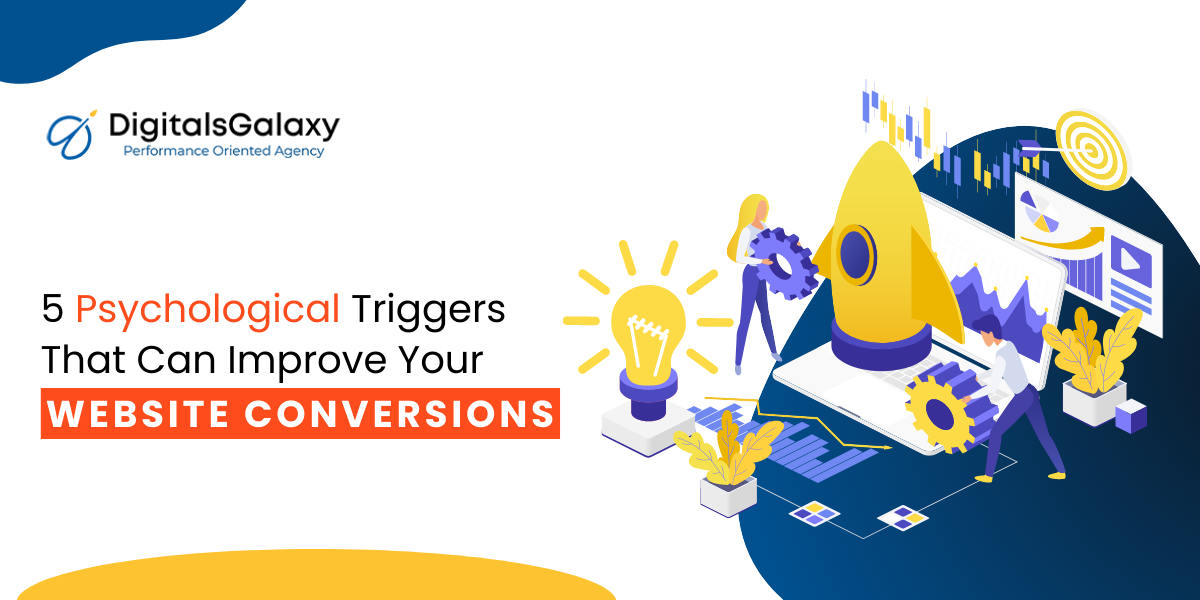






Psychological triggers (or cognitive biases) are mental habits that explain why we tend to think in a certain manner. These habits (or “heuristics”) are not irrational; rather, they assist us in making quick decisions without much thinking. Human beings are emotional creatures. We make purchases based on how we feel, so we focus a lot on how marketing may appeal to our emotions rather than our reasoning abilities. The first thing a visitor sees when they land on a landing page has a huge effect on how often they buy from us. If we manage to trigger specific emotions in our customers before the purchase, we can increase revenues.
As a website owner, your main goal is to get people to visit your site and turn them into customers. But this isn’t always easy to do, especially if you don’t know much about the psychology behind website conversions. Psychology plays a crucial role in web design and marketing, and understanding how it works can help you improve your website conversions. In this blog post, we will explore five psychological triggers that can improve your website conversions.
Social proof is a powerful psychological trigger that can improve your website’s conversions. It refers to the tendency of people to follow the actions of others when they are unsure about what to do. Even though society sometimes values individuality, people are social creatures who like to think as a group. We seek out the approval of others and tend to stick with the crowd whenever possible.
One way to implement the idea of social proof into your business is to incorporate a lot of third-party proof into your website. You can take advantage of this by using user-generated content (UGC) on your landing pages. This includes feedback from customers, testimonials, and social media posts. When potential customers visit your website, they’ll see that other people are satisfied with your business, and they’ll be interested in the benefits that you can offer them. This will establish a sense of trust and credibility, which will inspire site visitors to make a purchase.